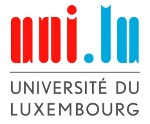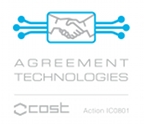Feb01
Workshop@Uni.Lu!
How can a group of agents aggregate their individually assigned truth-values to a collection of logically related propositions into a consistent aggregate? This is a social choice problem studied by the theory of judgment aggregation. A relatively new problem of social choice, much is unknown about the theory, methods, implementation and application of judgment aggregation.
In the past decade we witnessed the role of a computer shifting from the computer being a self contained machine for executing software, a ``personal computer", to being a ``net-book", a global communication tool and an access node for disseminating information. As computers and computing become more distributed, pervasive and invisible, the need is created for aggregating information from various sources into a consistent aggregate. Can judgment aggregation fill this need? This is the topic of the workshop organized by the ICR group at the University of Luxembourg.
To answer the workshop question, researchers need to work on both the judgment aggregation theory side and multiagent system side. Both of these disciplines are highly interdisciplinary, reflected in the research interests of the invited speakers.



